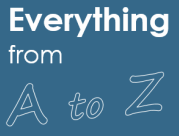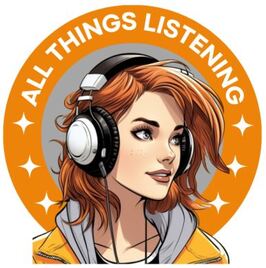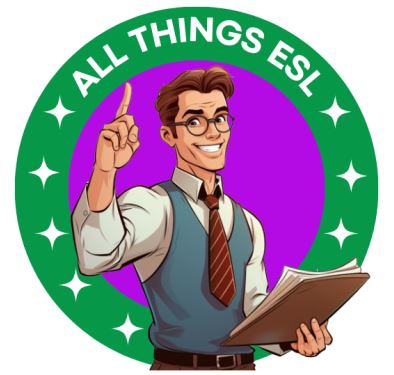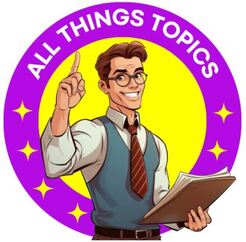Word Searches
Don't believe those naysayers who claim that Word Searches are a waste of time, that they are little more than "time-fillers" when you find yourself under-prepared for class.
Instead, Word Searches, especially Grammar Word Searches, offer students a fun, non-threatening, rewarding activity that reinforces prior learning. Here are four ways to get the most out of them.
1. Getting Started
Before your students begin searching for the words, consider working together with your learners and guiding them towards the words they need to find. For example, the ‘Past Tense’ Word Search presents a list of 18 present simple words and asks the students to find their past tense forms. Consider first writing the 18 words on the board and asking a few volunteers to come up and write the corresponding past tense forms. Invite help and correction from seated classmates. Of course, your learners should already have had some practice with the grammar beforehand.
2. Finding the Words
Make sure your learners are aware that the hidden words can run in any direction (horizontally, vertically or diagonally). It's also a great help if you can use a count-down timer to help focus your learners’ attention and make the activity more challenging and exciting. About 10 or 12 minutes is usually enough. Here’s a link to my favorite on-line countdown timer that I project on the board to motivate my students:
http://e.ggtimer.com/
3. Something Different
Put a spin on the activity by turning it into a team competition. Have your students form three or four teams (depending on the number of students in your class) - the teams then compete to find all the hidden words first. This works best when the word searches are taped to the walls (one per team) of the classroom (consider printing out the Word Search on an A3-sized paper), students standing and gathered around the Word Search. Things may get a bit crazy (and fun!) when 'spies' are sent out to sneak peeks at other teams' answers.
4. Checking Answers
Avoid the temptation of check answers only when everyone has finished. It just can’t be a good feeling to be one of 19 learners waiting (and doing nothing) while your lone classmate tries to find that very last hidden word. Instead, stick strictly to the time limit (and make sure your students know how much time is remaining). Ten or twelve minutes should be enough for several students to find all the words, with the majority of learners finding not all (but almost all) the words.
Projecting the answer key with an OHP or a smart board is the most efficient way for learners to check their answers. Otherwise, make photocopies of the answer key (about one answer key per 3 students) to bring to class to give to your students to share and check answers.
You can download all 18 Grammar Word Searches now available
on this site (as of the time of this blog post) by visiting the Grammar Target pages, or simply by clicking on the file links below:
Adjectives and Adverbs
Comparatives
Get (Phrasal Verbs)
Go (Phrasal Verbs)
Numbers
Past Simple
Plural Nouns
Prefixes (im- and in-)
Prefixes (re-)
Prefixes (un-)
Present Continuous
Present Perfect
Present Simple Verb Endings (s/es/ies)
Reflexive Pronouns
Superlatives
Tag Questions
Take (Phrasal Verbs)
Time Prepositions
Next time, the '100 Best Practices' blog looks at different ways to use the "Questions About You" worksheets.
Don't believe those naysayers who claim that Word Searches are a waste of time, that they are little more than "time-fillers" when you find yourself under-prepared for class.
Instead, Word Searches, especially Grammar Word Searches, offer students a fun, non-threatening, rewarding activity that reinforces prior learning. Here are four ways to get the most out of them.
1. Getting Started
Before your students begin searching for the words, consider working together with your learners and guiding them towards the words they need to find. For example, the ‘Past Tense’ Word Search presents a list of 18 present simple words and asks the students to find their past tense forms. Consider first writing the 18 words on the board and asking a few volunteers to come up and write the corresponding past tense forms. Invite help and correction from seated classmates. Of course, your learners should already have had some practice with the grammar beforehand.
2. Finding the Words
Make sure your learners are aware that the hidden words can run in any direction (horizontally, vertically or diagonally). It's also a great help if you can use a count-down timer to help focus your learners’ attention and make the activity more challenging and exciting. About 10 or 12 minutes is usually enough. Here’s a link to my favorite on-line countdown timer that I project on the board to motivate my students:
http://e.ggtimer.com/
3. Something Different
Put a spin on the activity by turning it into a team competition. Have your students form three or four teams (depending on the number of students in your class) - the teams then compete to find all the hidden words first. This works best when the word searches are taped to the walls (one per team) of the classroom (consider printing out the Word Search on an A3-sized paper), students standing and gathered around the Word Search. Things may get a bit crazy (and fun!) when 'spies' are sent out to sneak peeks at other teams' answers.
4. Checking Answers
Avoid the temptation of check answers only when everyone has finished. It just can’t be a good feeling to be one of 19 learners waiting (and doing nothing) while your lone classmate tries to find that very last hidden word. Instead, stick strictly to the time limit (and make sure your students know how much time is remaining). Ten or twelve minutes should be enough for several students to find all the words, with the majority of learners finding not all (but almost all) the words.
Projecting the answer key with an OHP or a smart board is the most efficient way for learners to check their answers. Otherwise, make photocopies of the answer key (about one answer key per 3 students) to bring to class to give to your students to share and check answers.
You can download all 18 Grammar Word Searches now available
on this site (as of the time of this blog post) by visiting the Grammar Target pages, or simply by clicking on the file links below:
Adjectives and Adverbs
Comparatives
Get (Phrasal Verbs)
Go (Phrasal Verbs)
Numbers
Past Simple
Plural Nouns
Prefixes (im- and in-)
Prefixes (re-)
Prefixes (un-)
Present Continuous
Present Perfect
Present Simple Verb Endings (s/es/ies)
Reflexive Pronouns
Superlatives
Tag Questions
Take (Phrasal Verbs)
Time Prepositions
Next time, the '100 Best Practices' blog looks at different ways to use the "Questions About You" worksheets.






